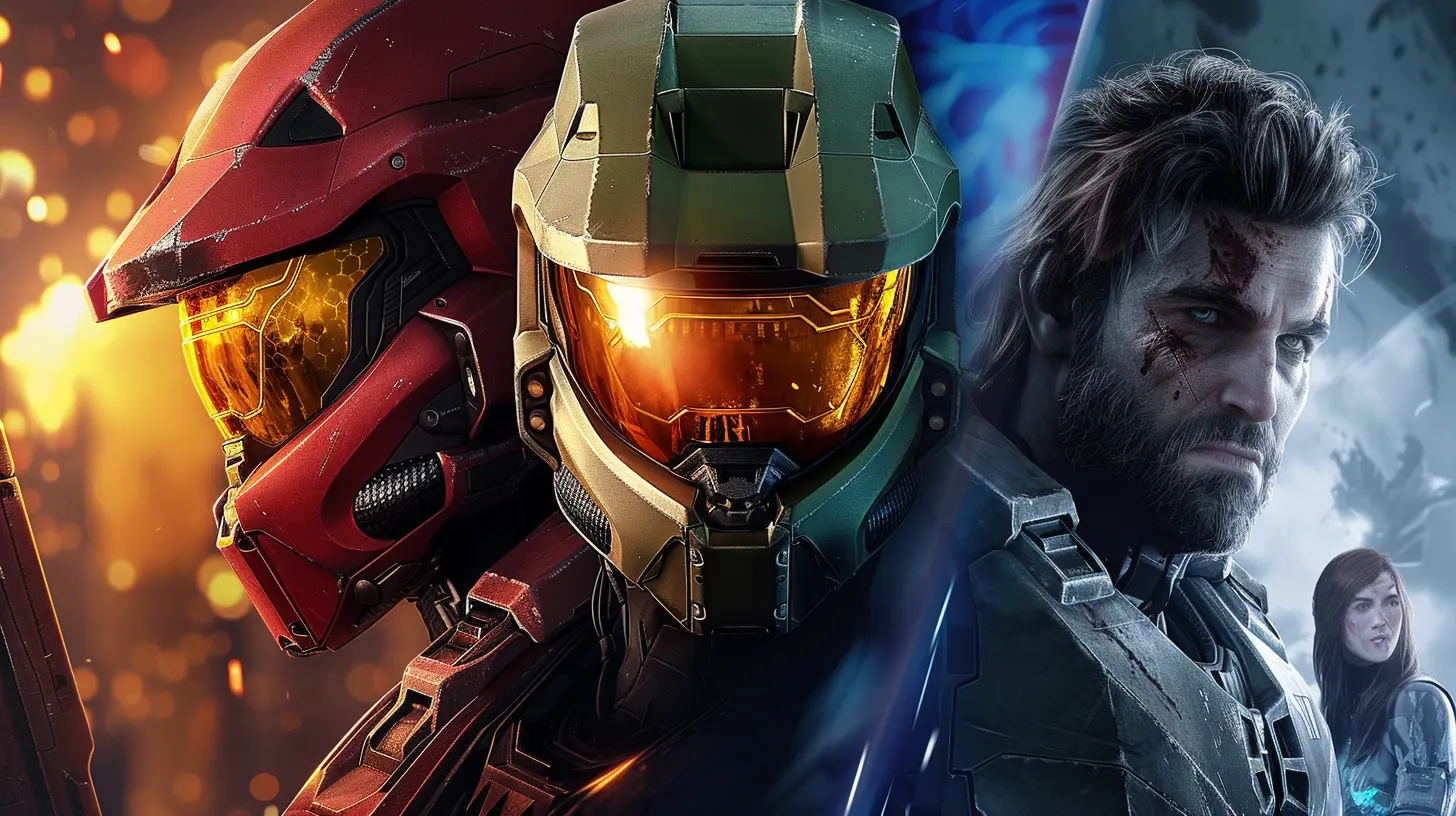Fan Voted vs Expert Panel: Which Game Awards are More Valid?
20 August 2025
Let’s be real — game awards stir up a lot of feelings. Some fans treat them like the Oscars of gaming, while others roll their eyes, muttering, “It’s all rigged anyway.” And the age-old debate? Whether fan-voted or expert-panel awards carry more weight.
So, who should we trust — the passionate gamers who pour hours into their favorite titles, or the critics and industry insiders who've played everything under the sun with a critical eye? Pull up a chair, grab a snack, and let’s dive deep into this pixel-packed face-off.
The Basics: What's the Difference Anyway?
Before we throw punches (figuratively), let’s break down what we’re comparing.🎮 Fan-Voted Game Awards
These are the awards where the power is in your hands — yes, you, the player. Whether it’s through online polls, social media votes, or platform-based upvotes, fan-voted awards are essentially popularity contests. The more buzz a game has (and the more passionate its fanbase), the better its chances of winning.🧠 Expert Panel Game Awards
Then we’ve got the expert panels — the critics, journalists, developers, and industry veterans. They sit down, compare notes, and vote based on categories like game design, innovation, storytelling, mechanics, and artistic merit.Both sides have their merits. But both also come with a few, let’s say… bugs in the system.
The Case for Fan-Voted Awards
Alright, let’s start with the people's choice.1. It’s the Voice of the Community
Gamers are the ones actually playing the games. They spend hours exploring open worlds, getting emotionally wrecked by plot twists, and battling it out in PVP arenas. Their votes reflect real, honest experiences. It’s a raw, authentic take from people who love games not because they’re paid to play them, but because they genuinely enjoy them.2. Fan Support = Real Impact
Let’s not pretend we haven’t seen an underdog game win big thanks to a rabid cult following (looking at you, Among Us). Fan voting levels the playing field — giving smaller games or indie titles a shot if they struck the right emotional chord.3. Engaging the Audience
Fan-voted awards engage the community. They turn a passive audience into active participants. Just like Twitch polls or subreddit debates, it’s all about that shared sense of ownership. And honestly, isn’t that kind of cool?The Flip Side? Popularity Over Quality
Here’s the catch: The most popular games tend to dominate. A visually stunning narrative-heavy gem might lose out to another battle royale because, well, more people played the shooter. It can turn into a high-school popularity contest — the one with the biggest Instagram following wins.
The Argument for Expert Panels
Now, let’s hear from the suits — well, not really suits, but the seasoned gamers and journalists who know their FPS from their RPGs with surgical precision.1. A Balanced, Informed View
Expert panels are made up of individuals who play a heck of a lot of games every year — and not just the hyped ones. They’ve got a wider perspective and can weigh technical aspects like sound design, level architecture, and storytelling in ways most casual gamers may not even notice.2. Recognition Beyond The Mainstream
While fan votes can be swayed by Twitch streamers and memes, critics often shine a light on games that deserve more visibility. Remember when Hades swept awards for its innovative gameplay and storytelling? That’s the kind of balance expert panels can bring.3. Less Bias, More Analysis
While no one is completely unbiased (we’re all human, after all), critics are trained to evaluate games more critically. They’re less likely to be swayed by hype and more likely to judge a game on its merits.The Downside? Disconnection From the Audience
Let’s not sugarcoat this — sometimes experts can feel out of touch. We've all scratched our heads at award decisions like, “Wait, that game won Game of the Year?” If the majority of players didn’t even play it, what message does that send?
The Middle Ground: Hybrid Awards
Here’s where things get interesting. A lot of major game awards shows, like The Game Awards hosted by Geoff Keighley, combine both fan votes and critic scores. It’s kind of like a checks and balances system — fans get a voice, but the final decision includes professional input.Is This the Best of Both Worlds?
In theory, yes. Fans push their favorites, experts weigh in with nuance, and the final winner ideally represents both quality and popularity. But it’s not perfect. Not all fans participate in voting, and sometimes expert panels are composed of a narrow demographic, limiting perspectives.Real Talk: Which is More Valid?
Ah, the million-dollar question. And here’s where things get juicy.Depends on What You Mean by 'Valid'
If we’re talking about what game made the biggest impact on the community, then fan votes might be more valid — they capture the zeitgeist. But if we're looking for artistic or technical excellence? Expert panels probably have the edge.Gaming is Personal
Let’s not forget that games are art. They’re also entertainment. They're experiences. And just like film, music, or books, what hits one person in the feels might completely bore another. That’s the beautiful subjectivity of it all.So, can we ever have an “objective” winner? Not really. There will always be passionate debates and angry Reddit threads. And maybe that’s part of the fun.
Famous Controversies That Fueled the Debate
Awards shows aren't strangers to drama. Here are a few spicy moments that made headlines:- The Last of Us Part II (2020): Swept The Game Awards, leading to fan backlash. Many felt other games deserved the spotlight more.
- Genshin Impact vs. Halo Infinite (Player’s Voice 2022): Genshin fans mobilized hard, spamming votes and memes. Controversy? Absolutely. Valid result? Debatable.
- Elden Ring vs. God of War: Ragnarök (2022): Critics loved both, fans were torn, and the internet was ablaze with think pieces.
These examples show that no matter the voting system, someone’s going to be salty. It’s almost tradition at this point.
What Do Developers Think?
Believe it or not, most devs don’t lose sleep over which award they win — fan-voted or critic-decided. What matters more is engagement, community feedback, and long-term impact.Though winning any award does bring visibility and sales spikes (not complaining about that, right?), many developers appreciate the validation from fans just as much as from critics — if not more.
So… Who Wins?
Honestly? You decide.There’s no perfect system. Fan-voted awards reflect mass appeal and emotional connection. Expert panels lean into critical thinking and technical excellence. Both have flaws, but both add value.
Maybe instead of picking a side, we should embrace both. Like having pizza for dinner and ice cream for dessert — we don't need to choose one forever.
Final Verdict? It’s All About Perspective
As long as we're all passionate about games, this argument will keep going in circles. And that’s okay. It means we care. Whether you’re voting in every fan poll or reading every critic review, your voice matters in this ever-evolving, button-mashing, loot-box-opening world of gaming.Next time you see someone’s "Game of the Year" pick and disagree? Just smile and remember — those opinions are what make the gaming community so colorful (and chaotic).
all images in this post were generated using AI tools
Category:
Game AwardsAuthor:

Leif Coleman
Discussion
rate this article
1 comments
Haze Bowman
Both have merits; fan votes reflect popularity while expert panels ensure informed, quality judgments.
September 1, 2025 at 4:25 AM

Leif Coleman
Thank you for your insight! Balancing popularity with expert evaluation is indeed crucial for fair recognition in game awards.


